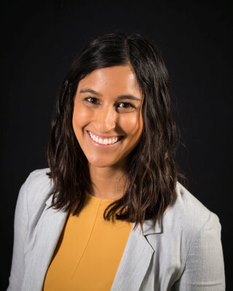#073 Dr. Aamena Kapasi: FASD and Therapy
Jul 19, 2021
Emotional Regulation.
Dialectical Behaviour Therapy (DBT).
Substance use treatment programs.
How do these three subjects relate and what helps?
You will find out in today’s episode that will give you hope, inspiration and acknowledgement as a caregiver or individual with FASD. Your voices are heard. Your opinions and experiences do matter. Research is underway to find answers to create better supports, interventions and change outcomes.

Dr. Aamena Kapasi is a postdoctoral fellow at the University of Alberta and is working on the Substance Use and Addictions in FASD Populations study for her postdoctoral research in partnership with CanFASD. Aamena completed her M.A in Counselling Psychology at the University of Western Ontario, and her Ph.D. in School and Clinical Child Psychology at the University of Alberta. Aamena has been researching FASD since 2013, focused on supports and interventions for individuals with FASD. She has a passion for both research and clinical work and children, youth, and families.
There is so little research on FASD and interventions. My Master’s Thesis was with caregivers. They inspired and motivated me to learn and do more in this area.
We have a lot of anecdotal accounts about what therapy and interventions work for individuals on the Spectrum – particularly with emotional regulation and substance use. But what does the research tell us? Aamena and I break down:
- Why emotional regulation is important and if/how DBT and other therapies help.
- The most important success factor for any therapy and the role of caregivers.
- What Mindset Theory is and do individuals with FASD have a fixed or growth mindset?
We also learn about the surprising outcome of Aamena’s recent research, and she provides details on her current research on substance use treatment programs for individuals with FASD.
Another great episode. I do not doubt that Dr. Kapasi’s work will achieve its goals for individuals with FASD to create meaningful and healthy lives.
Show Notes:
If you are in Canada and want to participate in the Substance Use Treatment Program research, email Dr. Kapasi at: kapasi@ualberta.ca
Please note: Individuals with FASD who have been in substance use treatment programs and caregivers participate separately. Even as a caregiver if you want to provide your experience you do not need to have your loved one participate. This is an important way you can contribute to making systems better.

